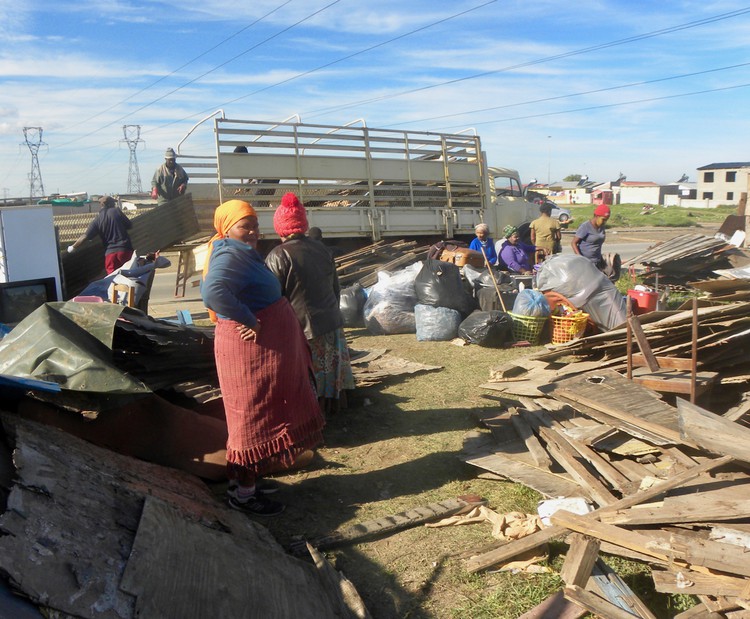“We should have left this place many years ago”
Residents of Powerline informal settlement are busy relocating to serviced stands in Port Elizabeth
About one hundred residents of Powerline, an informal settlement in Port Elizabeth located underneath high voltage power lines, were relocated by the municipality on Monday. They have been moved from NU10 to NU29, also in Motherwell. Hundreds more are packing in anticipation of being moved.
“We have relocated the first batch of people to NU29 where the place is serviced. They are going to wait for their houses while on those sites. All people living in the Powerline informal settlement are in the process of being relocated,” said Andile Lungisa, Nelson Mandela Bay Metropolitan Municipality head of infrastructure and engineering.
Lungisa said the municipality will soon build strong barriers to secure areas under powerlines against future land occupations.
Simphiwe Falton, who has a physical disability, said various municipal officials had promised that the disabled, the elderly and child-headed households would get first preference when houses were being allocated.
“This did not happen … Those who were allocated houses ahead of us were lucky ,” he said.
“I am however pleased to leave Powerline because it is not good for human habitation. There are no toilets. We have one water tap for about a thousand people, and worse still, living under electricity pylons above our heads was very unsettling,” said Falton.
People started to settle in Powerline in 1996. They have for all these years resisted the demolition of their shacks.
Mavis Salas said, “When I came to stay here there were no shops and houses as there are today. It was a long time ago and the late Nelson Mandela was still President of the country. I applied for an RDP house then. I was continuously being told that I should wait for my application to be processed. Many people who came after me got their houses.”
Residents complain of high crime and some blame an all-night tavern nearby.
“I have lost count of how many people I heard outside my shack crying for help while being robbed or killed at night,” said Salas.
Her younger sister, Thelma, said, “We should have left this place many years ago but I presume some people were favoured ahead of us. It is not a place to raise your children and you then expect them to lead a normal life.”
Support independent journalism
Donate using Payfast

Don't miss out on the latest news
We respect your privacy, and promise we won't spam you.
Next: Pharmaceuticals and industrial chemicals found in fish caught off Cape Town’s coast
Previous: “The ANC has fooled us enough. They must deliver” says Pietermaritzburg protester
© 2019 GroundUp.
This article is licensed under a Creative Commons Attribution-NoDerivatives 4.0 International License.
You may republish this article, so long as you credit the authors and GroundUp, and do not change the text. Please include a link back to the original article.

